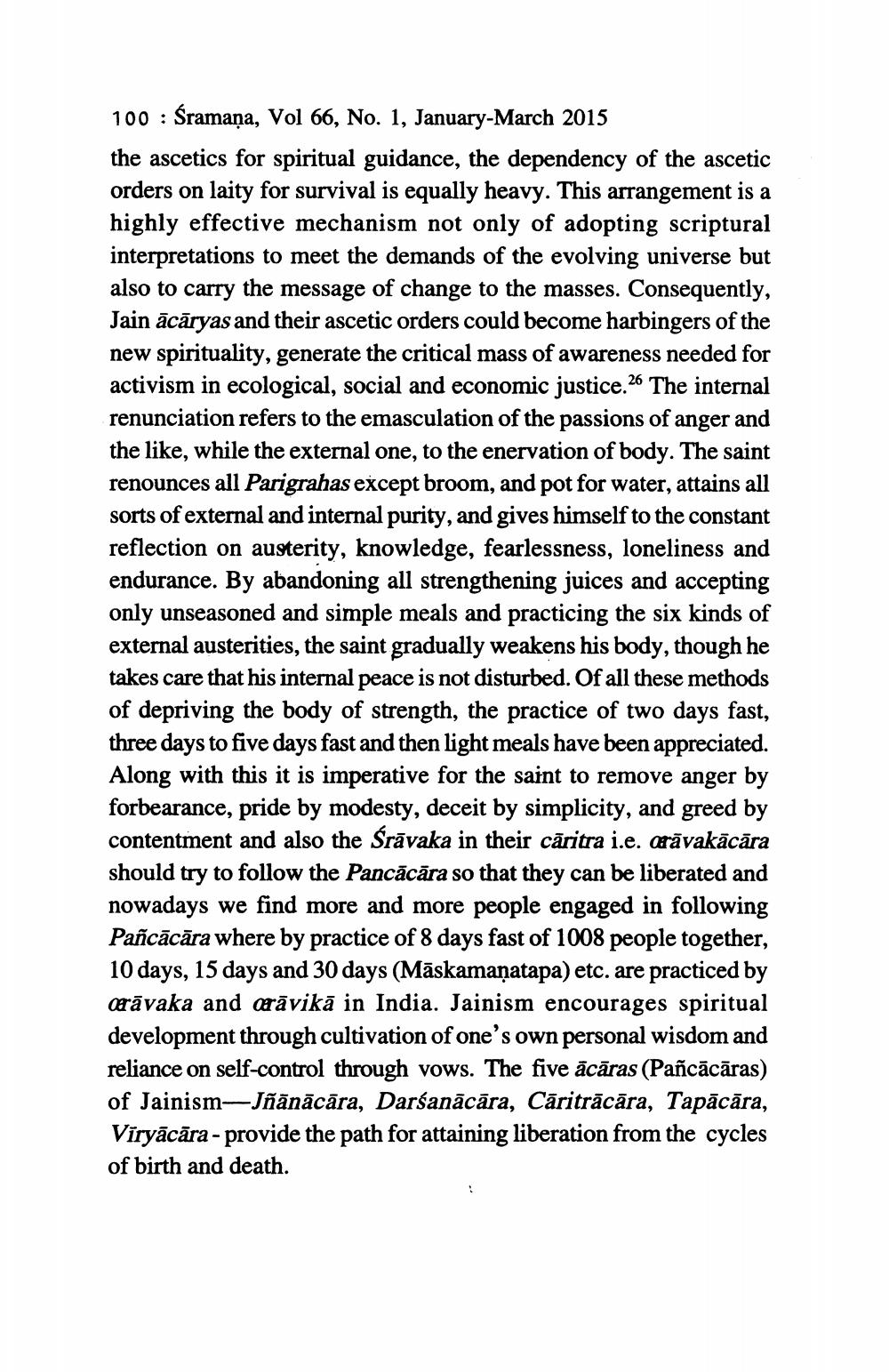________________
100 : Śramaņa, Vol 66, No. 1, January-March 2015 the ascetics for spiritual guidance, the dependency of the ascetic orders on laity for survival is equally heavy. This arrangement is a highly effective mechanism not only of adopting scriptural interpretations to meet the demands of the evolving universe but also to carry the message of change to the masses. Consequently, Jain ācāryas and their ascetic orders could become harbingers of the new spirituality, generate the critical mass of awareness needed for activism in ecological, social and economic justice. 26 The internal renunciation refers to the emasculation of the passions of anger and the like, while the external one, to the enervation of body. The saint renounces all Parigrahas except broom, and pot for water, attains all sorts of external and internal purity, and gives himself to the constant reflection on austerity, knowledge, fearlessness, loneliness and endurance. By abandoning all strengthening juices and accepting only unseasoned and simple meals and practicing the six kinds of external austerities, the saint gradually weakens his body, though he takes care that his internal peace is not disturbed. Of all these methods of depriving the body of strength, the practice of two days fast, three days to five days fast and then light meals have been appreciated. Along with this it is imperative for the saint to remove anger by forbearance, pride by modesty, deceit by simplicity, and greed by contentment and also the Srāvaka in their cāritra i.e. arāvakācāra should try to follow the Pancācāra so that they can be liberated and nowadays we find more and more people engaged in following Pañcācāra where by practice of 8 days fast of 1008 people together, 10 days, 15 days and 30 days (Māskamaņatapa) etc. are practiced by crāvaka and crāvikā in India. Jainism encourages spiritual development through cultivation of one's own personal wisdom and reliance on self-control through vows. The five ācāras (Pañcācāras) of Jainism-Jñānācāra, Darśanācāra, Căritrācāra, Tapācāra, Viryācāra - provide the path for attaining liberation from the cycles of birth and death.




